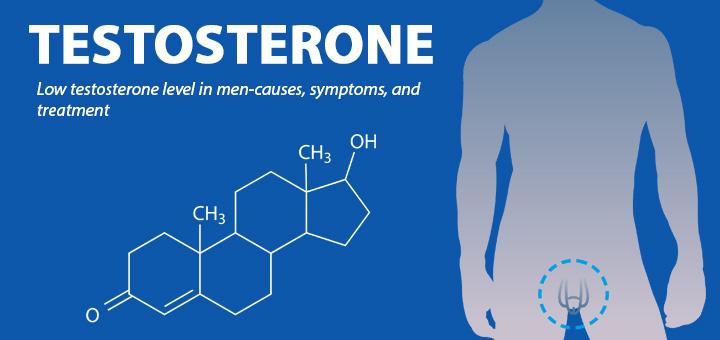What is Testosterone?
Testosterone is a hormone produced by the human body. It is primarily produced in men by the testicles. It stimulates the production of sperm as well as a man’s sex drive and is responsible for building muscle mass and bone mass as well as male characteristics including appearance. It is also responsible for normal growth and development of the male sex organs and sexual function. The pituitary gland and hypothalamus regulate testosterone production by testicles.
What are the functions of testosterone in men?
Testosterone is vital to the male body because it is responsible for countless functions that contribute to good health. The following are some of the functions of testosterone:
- Growth and function of male sex organs including prostate
- Maintaining sex drive and sexual function
- Development and distribution of facial, chest, and other male body hair
- Development of muscle mass and strength
- Distribution of fat
- Maintaining energy level
- Maintaining bone strength
What are the causes of low testosterone level in men?
The production of testosterone begins to fall after the age of 30, with an average loss of 1% per year. This is a normal loss with aging in all men. However, a variety of medical conditions contributes to low testosterone levels in men. The following are some of the other causes for falling testosterone level in men:
- Genetic causes
- Hormonal disorders
- Metabolic disorders
- Injury to the testicles.
- Testicular cancer.
- Prolactinoma in the pituitary gland
- Autoimmune diseases
- Chronic obstructive lung disease
- Chronic liver or kidney disease
- Type 2 diabetes
- Infection
- HIV/AIDS
- Obesity
What are the symptoms of low testosterone level?
Low Testosterone produces a variety of symptoms. The following are some of them:
- Low energy
- Low sex drive or libido
- Increased body fat
- Reduced muscle mass and strength
- Emotional changes
- Trouble concentrating
- Increased hair loss
- Changes in sleep patterns
- Decreased motivation
- Low self-confidence
- Depression
Some of the above symptoms might be due to other medical conditions, so it is important to check your testosterone level for a proper diagnosis.
What are the treatments available for low testosterone level?
Testosterone therapy or supplementation is the preferred treatment method recommended by doctors to increase testosterone level or to alleviate your symptoms. This therapy can be delivered in the following forms:
- Testosterone injections
- Testosterone pellets
- Testosterone patches
- Testosterone gel
You doctor might also recommend one of the following other treatment options:
- Erectile dysfunction medications.
- Losing weight
- Exercising more
If you are experiencing any low testosterone symptoms, consult your doctor for a proper diagnosis with a simple blood test. The doctor will formulate an appropriate treatment plan based on the diagnosis.

